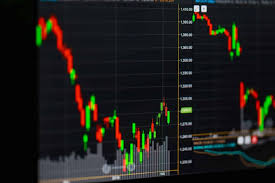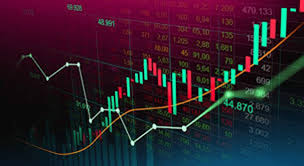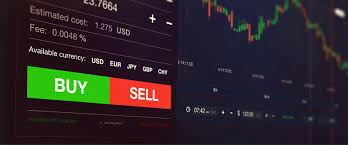
Understanding Forex Futures Trading: A Comprehensive Guide
Forex futures trading has gained immense popularity among investors seeking to profit from currency movements in a structured and regulated manner. By trading futures contracts, market participants can hedge against adverse price movements or speculate on the direction of currency pairs. This article delves into the core concepts of Forex futures trading, including its benefits, risks, and strategies. To learn more about Islamic trading opportunities, visit forex futures trading islamic-fxtrading.com.
What Are Forex Futures?
Forex futures are standardized contracts traded on regulated exchanges, wherein a buyer agrees to purchase a certain amount of a currency at a predetermined price at a specified future date. These contracts enable participants to hedge against fluctuations in currency exchange rates or to speculate on future movements. Unlike the spot market, where currencies are traded for immediate delivery, futures contracts obligate the buyer and seller to transact at a future date.
Benefits of Forex Futures Trading

- Leverage: Forex futures contracts typically require a margin deposit, allowing traders to control a large amount of currency with a relatively small amount of capital. This leverage can amplify profits, but it also increases potential losses.
- Liquidity: The Forex futures market is highly liquid, with a vast number of participants trading daily. This liquidity ensures that traders can enter and exit positions with minimal price slippage.
- Standardization: Because Forex futures contracts are standardized, they provide transparency and simplify the trading process. Traders know the contract size, expiration dates, and pricing details upfront.
- Risk Management: Traders can use Forex futures to hedge their positions in the spot market, effectively reducing potential losses due to adverse price movements.
Risks Associated with Forex Futures Trading
While Forex futures trading offers numerous benefits, it is not without its risks. Traders should be aware of several factors that can impact their trading performance:
- Market Volatility: The Forex market is known for its price fluctuations, which can result in significant gains or losses. Traders must be prepared for abrupt market movements and employ effective risk management strategies.
- Leverage Risks: While leverage can enhance profits, it can also lead to substantial losses if the market moves against a trader’s position. It is crucial to use leverage judiciously and understand the associated risks.
- Liquidity Risks: Although the Forex futures market is generally liquid, certain currency pairs may experience low trading volume, leading to wider bid-ask spreads and increased transaction costs.
- Regulatory Risks: Changes in regulations or unexpected geopolitical events can impact currency values, leading to unforeseen losses for traders.
How to Get Started with Forex Futures Trading
If you’re interested in diving into Forex futures trading, here are some steps to guide you:

- Educate Yourself: Before trading, it’s essential to understand the fundamentals of Forex futures, including how they work, the associated risks, and various trading strategies. Numerous online resources, courses, and seminars are available to help you build your knowledge base.
- Select a Broker: Choose a reputable broker that offers Forex futures trading. Look for a broker with a user-friendly trading platform, competitive spreads, and robust customer support.
- Create a Trading Plan: A well-defined trading plan is essential for success in Forex futures. Determine your trading goals, risk tolerance, and the strategies you intend to use. This plan should also include rules for entering and exiting trades.
- Practice with a Demo Account: Before risking real money, consider practicing on a demo account. This allows you to familiarize yourself with the trading platform and test your strategies without financial risk.
- Start Trading: Once you’re comfortable with the trading platform and your strategy, you can start trading with real money. Begin with small positions and gradually increase your exposure as you gain confidence and experience.
Popular Trading Strategies for Forex Futures
There are several trading strategies that traders commonly employ in the Forex futures market. Some of the most popular strategies include:
- Day Trading: This involves making multiple trades within a single day, aiming to profit from short-term market movements. Day traders typically close all positions by the end of the trading session to avoid overnight exposure.
- Swing Trading: Swing traders hold positions for several days or weeks, seeking to capitalize on expected price movements. This strategy allows traders to take advantage of market trends without constantly monitoring the market.
- Position Trading: This long-term strategy involves holding positions for weeks, months, or even years. Position traders rely on fundamental analysis and are less concerned with short-term price fluctuations.
- Scalping: Scalping focuses on making small profits from numerous trades throughout the day. Scalpers aim to exploit minor price movements, relying on high trading volume and quick execution.
Conclusion
Forex futures trading presents a unique opportunity for investors to engage in the dynamic world of currency trading. While it offers numerous advantages, such as leverage and liquidity, it also carries inherent risks. By understanding the basics, developing a robust trading plan, and implementing effective risk management strategies, traders can navigate the Forex futures market with greater confidence. Whether you are looking to hedge your positions or seek speculative opportunities, Forex futures may be a suitable avenue for enhancing your trading portfolio. With the right education and resources, including insights from platforms like islamic-fxtrading.com, you can set yourself up for success in this exciting market.
